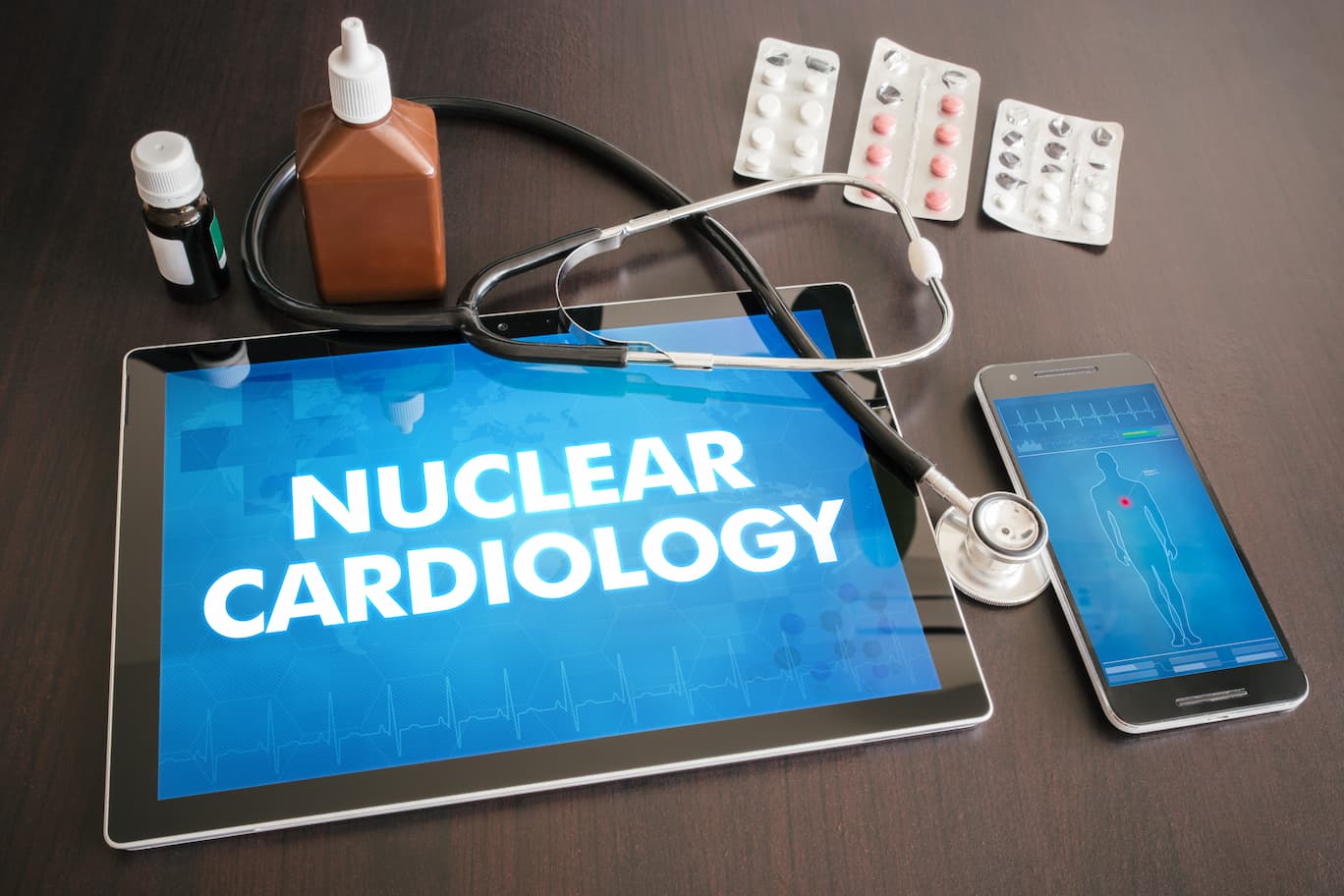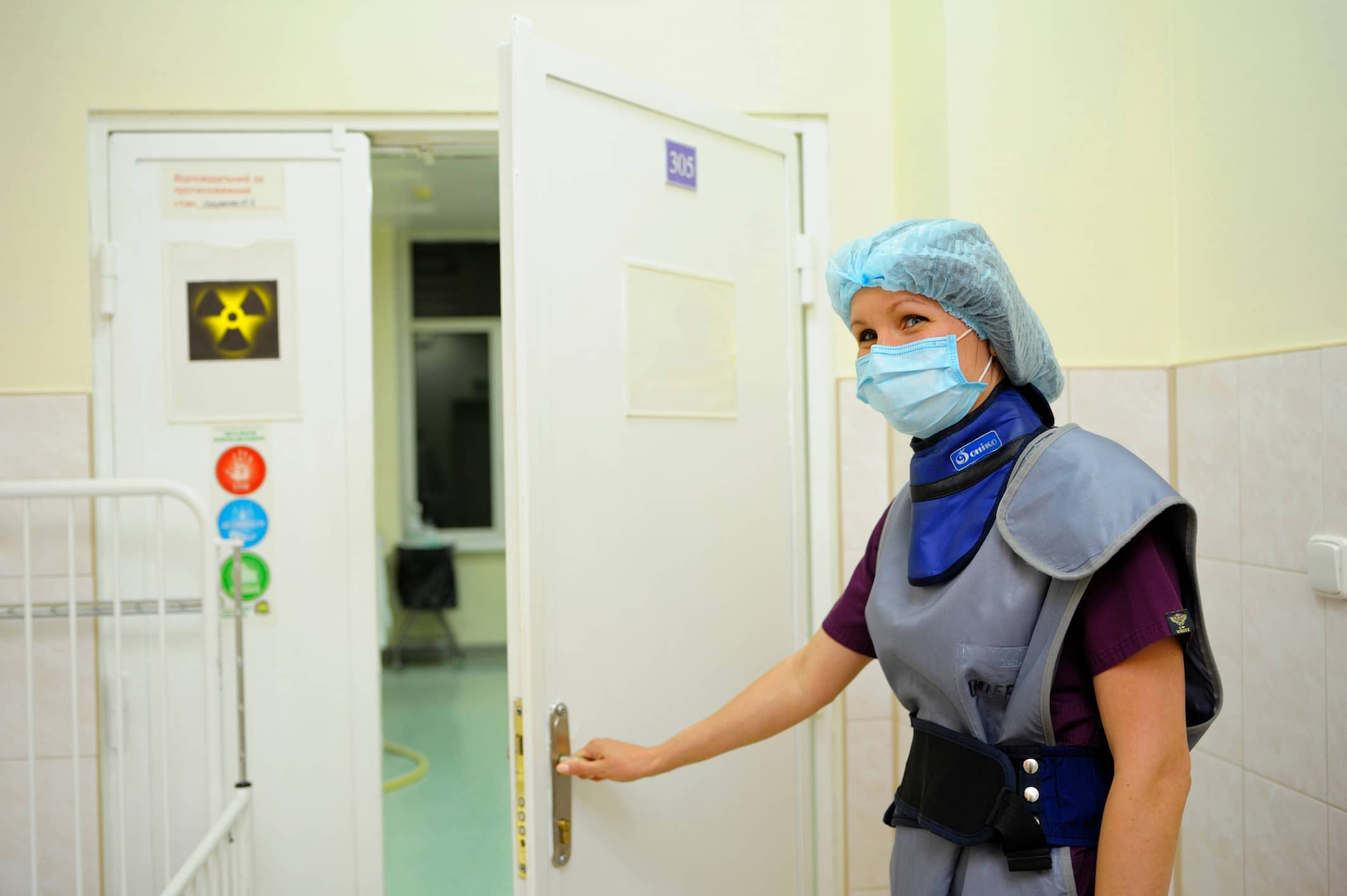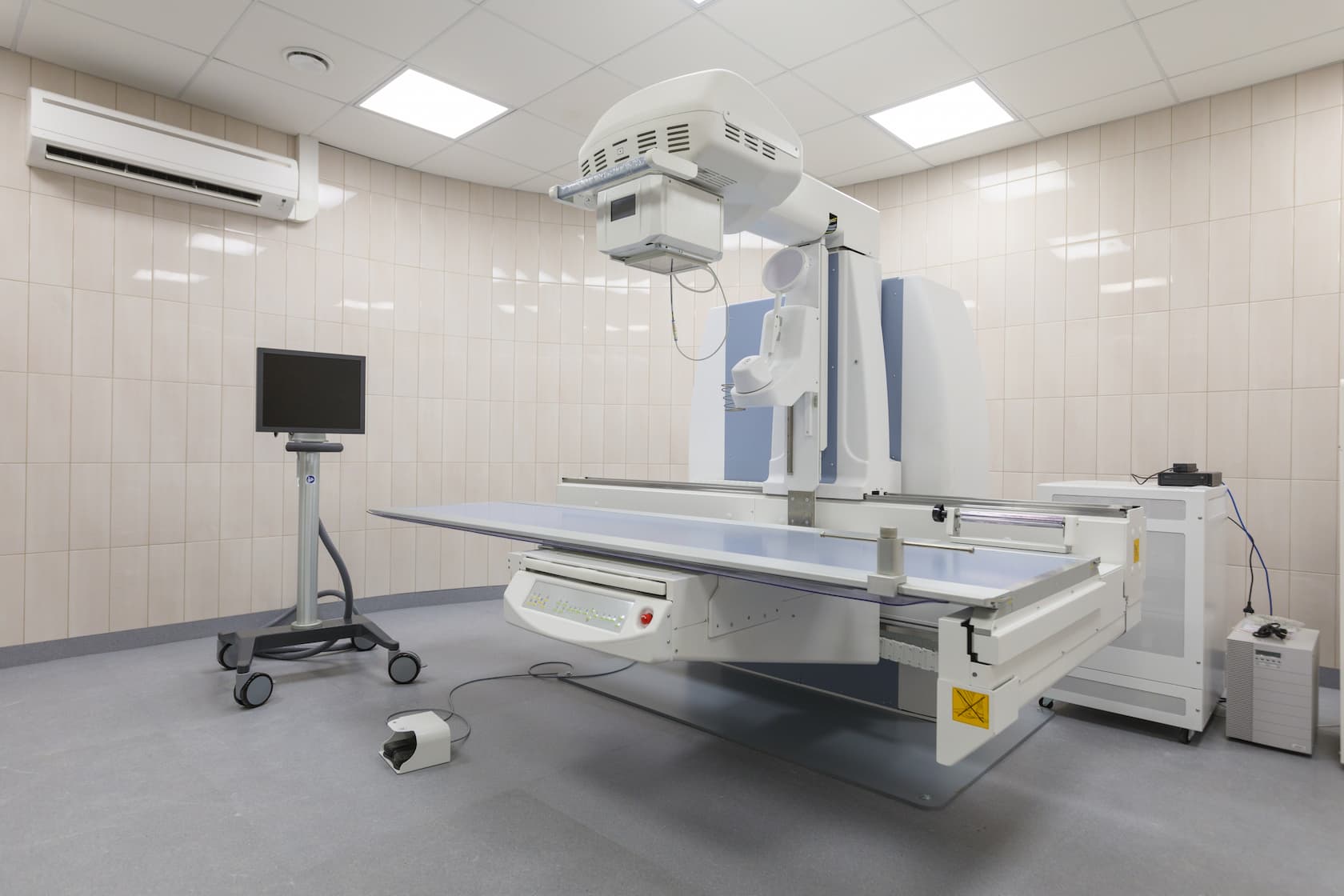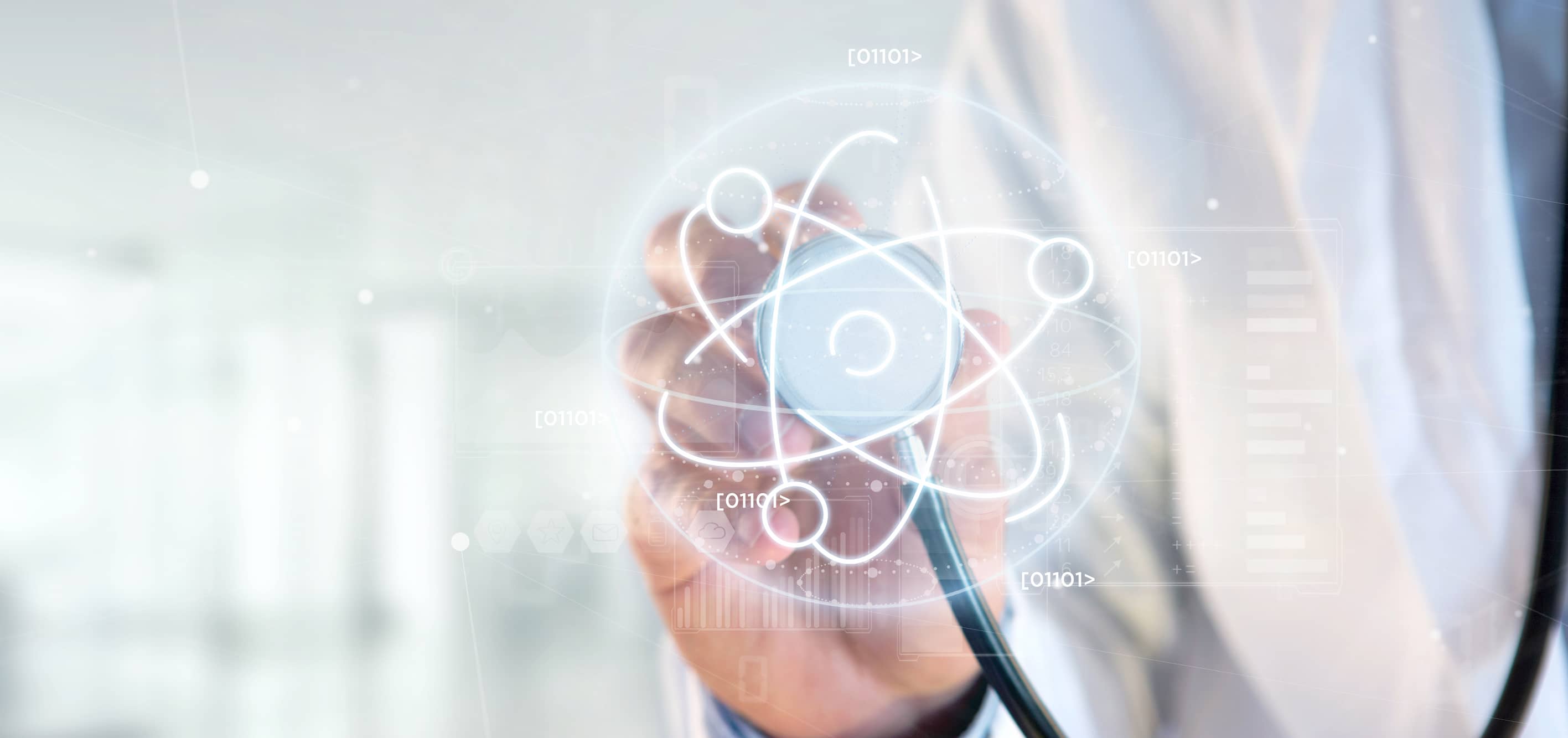Nuclear Cardiology Test in Turkey
Healthy Türkiye helps you find the best nuclear cardiology test in Turkey at affordable prices and adopts a 360-degree service approach in all areas of health through affiliated hospitals.
- Medical Treatment
- Cardiology Treatment in Turkey
- Carotid Artery Stenting in Turkey
- Cerebrovascular Disease Treatment in Turkey
- Colour-Duplex Sonography in Turkey
- Pericarditis Treatment in Turkey
- Peripheral Artery Disease Treatment in Turkey
- Coronary Heart Disease Treatment in Turkey
- EECP Treatment in Turkey
- Congenital Heart Treatment in Turkey
- Electrophysiology Study in Turkey
- Nuclear Cardiology Test in Turkey
- Pediatric Cardiology Treatment in Turkey
- Rheumatic Heart Disease Treatment in Turkey
- Spiro-Ergometry in Turkey
- Homepage
- Medical Treatment
- Nuclear Cardiology Test in Turkey

About Nuclear Cardiology Test in Turkey
Nuclear cardiology test in Turkey is a safe, painless imaging method that uses very small amounts of radioactive tracers to provide detailed information about the structure and function of your heart. A special camera creates a digital computer image by tracking the tracer you will receive during the procedure.
These images help specialists identify heart disease or damage caused by previous heart attacks and determine your risk of future heart attacks. Nuclear cardiology tests in Turkey can measure your heart function and help your cardiologist determine your diagnosis and treatment options.
Nuclear cardiology in Turkey is a branch of medical imaging that uses small amounts of radioactive material to diagnose heart-related illnesses such as coronary artery disease. Small, safe amounts of radioactive materials are injected into the people and travel to the heart, enabling images to be created and interpreted by a board-certified cardiologist or radiologist with specialty expertise in nuclear cardiology.
Nuclear imaging tests in Turkey evaluate how your heart functions during exercise. If you can’t exercise, specialists use medications that simulate exercise to determine your heart’s capacity, physical conditioning, and whether it is receiving enough blood under stress or rest conditions. Test results are generally reported within 24 hours (or within a few hours for emergency room patients).

Nuclear Cardiology Test Procedure in Turkey
Nuclear cardiology tests in Turkey measure the amount of blood flow to the heart muscle. Specialists use these tests to diagnose and assess coronary artery disease and cardiac ischemia (decreased blood flow and oxygen to the heart muscle). These tests are also known as heart perfusion imaging tests or cardiac nuclear stress scans.
Nuclear cardiology tests safely take pictures of the heart. A very sensitive gamma camera takes still pictures and movies of the heart with rest, exercise, or medication-induced stress testing. These cardiac pictures help to identify coronary heart disease, the severity of prior heart attacks, and the risk of future heart attacks. These highly accurate measurements of heart size and function and the amount of heart muscle at risk of damage enable cardiologists to better prescribe medicines and select further testing like a coronary angiogram, the need for angioplasty and bypass surgical operation, or devices to optimize treatment outcomes.
Reasons for Nuclear Cardiology Tests
Nuclear cardiology tests in Turkey are used for many purposes:
To assess blood flow to regions of injured cardiac muscle following a heart attack.
To determine whether you have coronary artery disease and the extent to which your arteries are clogged
To determine whether you would benefit from subsequent operations like heart catheterization or bypass surgery.
To assess the efficacy of treatments like cardiac catheterization or bypass surgery.
To determine the effect of coronary calcium and ischemia on your heart muscle
Finally, they might use to evaluate your need for medication and lifestyle modifications vs medical procedures or operations.
What Does a Nuclear Cardiologist Do?
The main role of the nuclear cardiologist in Turkey is in common with all medical specialties, the assessment of the patient, but it also includes determining whether the appropriate nuclear medication technique can add to the patient’s clinical management.
The most commonly used method is spect. The commonest methods used for diagnosis include myocardial perfusion scintigraphy (MPS) and radionuclide ventriculography (RNV). The new applications involve cardiac neuronal imaging with mIBG and cardiac inflammation imaging with FDG. Some centers in Turkey have the ability to also perform PET myocardial perfusion imaging.
SPECT MPS are used for functional assessment of relative myocardial blood flow under stress and then compared with resting conditions using cardiac-specific radiotracers. This allows the identification of areas of ischemia, infarction, and contractile function, which helps provide prognostic information. The stress may be dynamic (e.g. treadmill), or by employing various pharmacological agents. Images are obtained using a SPECT gamma camera, and analysis is performed using computer software, which is specially created to provide unique functional data. This is then interpreted in conjunction with patient history, and stress test performance by experienced clinicians to be used in patient management.
This non-invasive, functional assessment method has been well established based on robust clinical and research evidence and has proven to be cost-effective in the management of mainly ischaemic heart disease and also other cardiac conditions. The nuclear cardiologist’s role involves organizing appropriate tests for specific clinical indications, supervising cardiac stress tests, interpreting images in light of clinical history, and helping patient management in a multi-disciplinary format.
How Can This Technology Apply To Cardiology?
Cardiovascular specialists in Turkey utilize nuclear imaging to spot various diseases, including coronary artery disease and other damage to the heart. The precision and detail in the images that this type of technology can produce allow for early diagnoses and therefore faster treatment when needed.
More specifically, cardiologists will generally suggest a nuclear stress test to assess cardiovascular risks and blood flow concerns. This type of testing combines the physical activity of a standard stress test with the specialized gamma-ray cameras of nuclear medication to create an effective and thorough cardiovascular diagnostic tool.

We Care About Your Health
Healthy Türkiye provides the best for your health and comfort. You will feel privileged with us.
7/24 Quality Personal Assistance Throughout Your Journey
Customizable for You All-Inclusive Packages
Get the Right Advice for your Health
How is Nuclear Cardiology Test Performed in Turkey?
In preparation for a nuclear cardiology test in Turkey, your specialist might ask you to fast or temporarily stop certain medications. For the tests to be as accurate as possible, it is important to follow your specialist’s instructions prior to the stress test.
During the nuclear cardiology test in Turkey, the cardiac stress technician attaches electrodes to your chest, legs, and arms. These electrodes connect to an electrocardiogram (EKG) device. The technician will then want you to walk on a treadmill, during which he or she will slowly increase the incline or resistance to reach a target heart rate. If you cannot exercise on a treadmill, specialists will give you medicine that stimulates your heart in a way similar to exercise.
When your heart rate reaches a set target for exercise, the technologist will inject a radioactive tracer. He/she will then use a gamma camera — a special camera similar to a CT device — to take images of your heart during and after stress. After analyzing your stress images, the technologist may take another set of images of your heart while it at rest. The specialist then compares the images of your heart during exercise and at rest.
After Nuclear Cardiology Test in Turkey
After the exercise is done, you may be asked to stand still for a few seconds and then lie down for a short while. Your specialist continues to watch your heartbeat and breathing during this time. After the nuclear cardiology test, you can generally return to your usual activities unless your care provider tells you not to do so. The radioactive tracer is eliminated from the body through urine or stool. You can drink plenty of water to help flush it out of your system.
Results of Nuclear Cardiology Test
Your specialist compares the two sets of pictures taken during your nuclear cardiology test in Turkey. The images show how blood flows through your heart at rest and during physical activity.
Your specialist talks to you about your test results. The results might show:
Blood flow patterns during exercise and rest. You might not require any additional tests.
Normal resting blood flow, but not during exertion. During exercise, a portion of the heart does not receive enough blood. This could indicate that one or more arteries are occluded, indicating coronary artery disease.
Decreased blood flow at rest and during exertion. A portion of the heart does not receive adequate blood at all times. This could be a result of significant coronary artery disease or a previous heart attack.
A lack of blood flow in some areas of the heart. A cardiac attack has caused damage to areas of the heart that do not show the radioactive tracer.
If you do not have enough blood flow through your heart, you might need a test called coronary angiography. This test helps specialists see blockages in the heart’s arteries. If you have a severe blockage in a heart artery, you might need a heart procedure called angioplasty with stenting. Or you may need open-heart surgery, known as coronary artery bypass surgery.

2026 Cost of Nuclear Cardiology Test in Turkey
All types of medical attention, like nuclear cardiology test are very affordable in Turkey. Many factors are also included in determining the cost of nuclear cardiology test in Turkey. Your process with Healthy Türkiye will last from the time you decide to have a nuclear cardiology test in Turkey until the time you are fully recovered, even if you are back home. The exact nuclear cardiology test procedure in Turkey depends on the type of operation involved.
The cost of nuclear cardiology test in Turkey does not demonstrate many variations in 2026. Compared to costs in developed countries like the United States or the UK, nuclear cardiology test costs in Turkey are relatively low. So, it’s no wonder patients from across the world visit Turkey for nuclear cardiology test procedures. However, price is not the only factor affecting choices. We suggest looking for hospitals that are safe and have nuclear cardiology test reviews on Google. When people decide to seek medical help for nuclear cardiology test, they will not only have had low-cost procedures in Turkey, but also the safest and best treatment.
At clinics or hospitals contracted with Healthy Türkiye, patients will receive the best nuclear cardiology test from specialist doctors in Turkey at affordable rates. Healthy Türkiye teams to provide medical attention nuclear cardiology test procedures and high-quality treatment to patients at a minimum cost. When you contact Healthy Türkiye assistants, you can get free information about the cost of nuclear cardiology test in Turkey and what this cost covers.
Why Is Nuclear Cardiology Test Cheaper in Turkey?
One of the main considerations before traveling abroad for nuclear cardiology test is the cost-effectiveness of the whole process. Many patients think that when they add flight tickets and hotel expenses to their nuclear cardiology test costs, it will become very expensive to travel, which is not true. Contrary to popular belief, round-trip flight tickets to Turkey for nuclear cardiology test can be booked very affordably.
In this case, assuming you are staying in Turkey for your nuclear cardiology test, your total travel expense of flight tickets and accommodation will only cost less than any other developed country, which is nothing compared to the amount that you are saving. The question “Why is nuclear cardiology test cheaper in Turkey?” is so common among patients or people simply curious about getting their medical treatment in Turkey. When it comes to nuclear cardiology test prices in Turkey, there are 3 factors allowing cheaper prices:
The currency exchange is favorable for whoever looking for nuclear cardiology test has a euro, dollar, or pound;
The lower cost of living and cheaper overall medical expenses such as nuclear cardiology test;
For nuclear cardiology test, incentives are given by the Turkish Government to medical clinics working with international clients;
All these factors allow for cheaper nuclear cardiology test prices, but let’s be clear, these prices are cheaper for people with strong currencies (as we said, euro, dollar, Canadian dollar, pound, etc).
Every year, thousands of patients from all over the world come to Turkey to get nuclear cardiology test. The success of the healthcare system has increased in recent years, especially for nuclear cardiology test. It’s easy to find well-educated and English-speaking medical professionals in Turkey for all kinds of medical treatment, such as nuclear cardiology test.

Why Choose Turkey for Nuclear Cardiology Test?
Turkey is a common choice among international patients seeking advanced nuclear cardiology test. Turkey’s health procedures are safe and effective operations with a high success rate like nuclear cardiology test. The increasing demand for high-quality nuclear cardiology test at affordable prices has made Turkey a popular medical travel destination. In Turkey, nuclear cardiology test is performed by highly experienced and trained doctors with the most advanced technology in the world. nuclear cardiology test is done in Istanbul, Ankara, Antalya, and other major cities. The reasons for choosing nuclear cardiology test in Turkey are as follows:
High-quality hospitals: Joint Commission International (JCI) accredited hospitals have dedicated nuclear cardiology test units that are specially designed for patients. International and national strict protocols provide effective and successful nuclear cardiology test for patients in Turkey.
Qualified experts: The expert teams include nurses and specialist doctors, together to carry out nuclear cardiology test according to the patient’s needs. All the included doctors are highly experienced in performing nuclear cardiology test.
Affordable price: The cost of nuclear cardiology test in Turkey is affordable compared to Europe, the USA, the UK, Singapore, Australia, etc.
The high success rate: Highly experienced specialists, the best available technology, and stringently followed safety guidelines for post-operative care of the patient, resulting in a high success rate for nuclear cardiology test in Turkey.
Is Nuclear Cardiology Test Safe in Turkey?
Did you know Turkey is one of the most visited destinations for nuclear cardiology test in the world? It is ranked one of the most visited tourist destinations for nuclear cardiology test. Over the years it has also come to be a very popular medical tourism destination too with many tourists coming in for nuclear cardiology test. There are so many reasons why Turkey stands out as a leading destination for nuclear cardiology test. Because Turkey is both safe and easy to travel to, with a regional airport hub and flight connections to pretty much everywhere, it is preferred for nuclear cardiology test.
The best hospitals in Turkey have experienced medical staff and specialists who have performed thousands of medical services, such as nuclear cardiology test. All procedures and coordination related to nuclear cardiology test are controlled by the Ministry of Health in accordance with the law. Over many years, the greatest progress in medicine has been observed in the field of nuclear cardiology test. Turkey is known among foreign patients for its great opportunities in the area of nuclear cardiology test.
To emphasize, besides the price itself, the key factor in selecting a destination for nuclear cardiology test is certainly the standard of medical services, the hospital staff’s high level of expertise, hospitality, and the safety of the country.
All-Inclusive Packages for Nuclear Cardiology Test in Turkey
Healthy Türkiye offers all-inclusive packages for nuclear cardiology test in Turkey at much lower prices. Extremely professional and experienced doctors and technicians carry out high-quality nuclear cardiology test. The cost of nuclear cardiology test in European countries can be quite expensive, especially in the UK. Healthy Türkiye provides cheap all-inclusive packages for a long and short stay of nuclear cardiology test in Turkey. Because of many factors, we can provide you with many opportunities for your nuclear cardiology test in Turkey.
The price of nuclear cardiology test differs from other countries due to medical fees, staff labor prices, exchange rates, and market competition. You can save much more in nuclear cardiology test compared to other countries in Turkey. When you purchase nuclear cardiology test all-inclusive packages with Healthy Türkiye, our healthcare team will present hotels for you to choose from. In nuclear cardiology test travel, you will have the price of your stay included in the all-inclusive package cost.
In Turkey, when you purchase nuclear cardiology test all-inclusive packages through Healthy Türkiye, you will always receive VIP transfers. These are provided by Healthy Türkiye, which has contracted with highly qualified hospitals for nuclear cardiology test in Turkey. Healthy Türkiye teams will organize everything about nuclear cardiology test for you and have you picked up from the airport and safely brought to your accommodation. Once settled in the hotel, you will be transferred to and from the clinic or hospital for nuclear cardiology test. After your nuclear cardiology test has been successfully completed, the transfer team will return you to the airport in time for your flight home. In Turkey, all packages of nuclear cardiology test can be arranged upon request, which relaxes the minds of our patients. You can reach out Healthy Türkiye for everything you need to know about nuclear cardiology test in Turkey.
The Best Hospitals in Turkey for Nuclear Cardiology Test
The best hospitals in Turkey for nuclear cardiology test are Healthy Türkiye, Memorial Hospital, Acıbadem International Hospital, and Medicalpark Hospital. These hospitals attract patients from all over the world seeking nuclear cardiology test due to their affordable prices and high success rates.
Best Doctors and Surgeons in Turkey for Nuclear Cardiology Test
The best doctors and surgeons in Turkey for nuclear cardiology test are highly skilled professionals who offer specialized care and advanced procedures. With their expertise and state-of-the-art techniques, these specialists ensure that patients receive high-quality nuclear cardiology test and achieve optimal health results.

Frequently Asked Questions
A nuclear cardiology test generally takes about three or four hours.
If they do occur, possible complications involve a rare allergic reaction to the radioactive dye used in a nuclear cardiology test. Feeling dizzy or lightheaded.
The nuclear cardiology test is often considered to be the most accurate type of stress test. It has a sensitivity of around 85%.
A radioactive substance, such as thallium or sestamibi, will be injected into one of your veins. You’ll lie down and wait for between 15 and 45 minutes. A special camera will scan your heart and create images to show how the substance has traveled through your blood and into your heart.
You should not eat or drink anything that is caffeinated or decaffeinated for at least 24 hours before the nuclear cardiology test. You might have a light meal two hours before your appointment. All medicines should be taken as you would normally, unless otherwise directed by your specialist.
The radioactive liquid exits your body via urine and bowel movements. Anybody who comes into contact with your urine or bowel movements should wash their hands as well. Children under the age of three should be given less time to cuddle and hug. Close time should be limited to up to 18 hours after your nuclear cardiology test.
